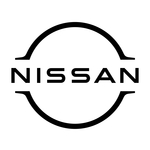Safety Features in Cars are Top Priority for Canadian Drivers
MISSISSAUGA, Ontario–(BUSINESS WIRE)–According to a 2022 survey conducted by Nissan Canada in partnership with the Canada Safety Council, four in five Canadians expressed that they have gotten used to having at least one driver-assistance feature in their vehicle. The survey also shows that approximately seven in ten drivers feel that these technologies could help them avoid potential accidents.
Driver-assistance technology is described as any tool installed in a vehicle that uses technology to render the task of driving easier and, most importantly, increase car and road safety. These can include intelligent cruise control, blind spot and lane deviation warnings, forward collision warnings, rear view cameras, rear automatic braking, and more. According to the survey results, Canadians rely heavily on these technologies for peace of mind.
To raise awareness for this year’s National Road Safety Week, which runs from May 17-23, automotive giant, Nissan and non-profit charitable organization, Canada Safety Council partnered together to understand which in-car technologies help Canadians feel safer on Canadian roads. With driver-assistance features becoming more prevalent in the Canadian road safety landscape, this survey was designed to better understand the features that Canadians deem to be most important allowing automakers to provide the most practical and sought-after technologies in cars.
“Nissan has been the first to market a number of advanced driver-assistance technologies globally, and we remain committed to developing the most useful safety features so we can roll them out in our most popular models,” said Steve Milette, President, Nissan Canada Inc. “The results of this poll are well in-line with our internal research which serves as a direction for us to understand our customers’ needs and expectations. This helped us in developing the Nissan Safety Shield 360, a suite of advanced driver-assistance systems, that use electronic aids to provide drivers with more comfort and safety, now offered as standard in 10 of our most sought-after models.”
“Our goal is to make Nissan owners feel highly confident about the safety of their vehicles. Understanding Canadian’s outlook towards safety features will help us develop technologies that are in-line with consumers’ needs and wants,” added Milette.
In fact, 72 per cent of respondents believe that driver-assistance technologies have the ability to help them avoid potential collisions, with 67 per cent also indicating that these technologies make them feel safer while driving.
“The task of driving requires a driver’s full attention at all times,” said Gareth Jones, President and CEO of the Canada Safety Council. “Maintaining vigilance and focus behind the wheel continues to be a must when driving and, while driver-assist technologies do not currently replace the need for defensive driving skills, it is clear that these tools when applied correctly support safer driving and road safety in general.”
The survey results show that the most essential driver-assistance technologies to Canadians are blind spot warnings (59 per cent), rear view cameras (58 per cent) and cruise control (55 per cent). Additionally, 71 per cent of respondents highlighted that safety features would be a top priority when purchasing a new vehicle, with a further three in five (61 per cent) saying they would not purchase a vehicle without the safety features they know and depend upon.
Nissan Canada offers a suite of driver-assistance systems in most of its vehicles. The Nissan Safety Shield 360 includes blind spot warning, automatic emergency braking with pedestrian detection, lane departure warning, rear cross-traffic alert, rear automatic braking and high beam assist. These technologies are offered as standard on the Nissan LEAF, Altima, Sentra, Maxima, Kicks, Qashqai, Rogue, Pathfinder, Armada and Frontier. In addition, Nissan Canada offers optional ProPILOT Assist which is a hands-on driver assist system that combines Nissan’s Intelligent Cruise Control and Steering Assist technologies.
As for future vehicle safety technologies, more than half of respondents agreed that self-driving vehicles are the future, a sentiment echoed by Nissan. The car manufacturer is currently developing vehicle control and driver-assistance technology that uses real-time information about the vehicle’s surroundings through next-generation high-performance LIDAR technology, radar and cameras to help dramatically enhance collision avoidance.
As part of the National Road Safety Week campaign, which runs from May 17 – 23, 2022, Nissan Canada and Canada Safety Council are urging motorists to be vigilant and aware when they’re behind the wheel in an effort to prevent fatalities to vulnerable road users.
For more information on National Road Safety Week, please visit https://canadasafetycouncil.org/safety-features-top-priority.
Survey Methodology:
An omnibus survey was conducted among a sample of 1,502 nationally representative Canadian adults, in collaboration with Angus Reid. Demographic quotas were implemented to ensure the sample composition is nationally representative of the audience at large.
Contacts
Lewis Smith
Manager, National Projects, Canada Safety Council
lewis.smith@safety-council.org
Didier Marsaud
Director, Corporate Communications, Nissan Canada
didier.marsaud@nissancanada.com







.jpg)




































